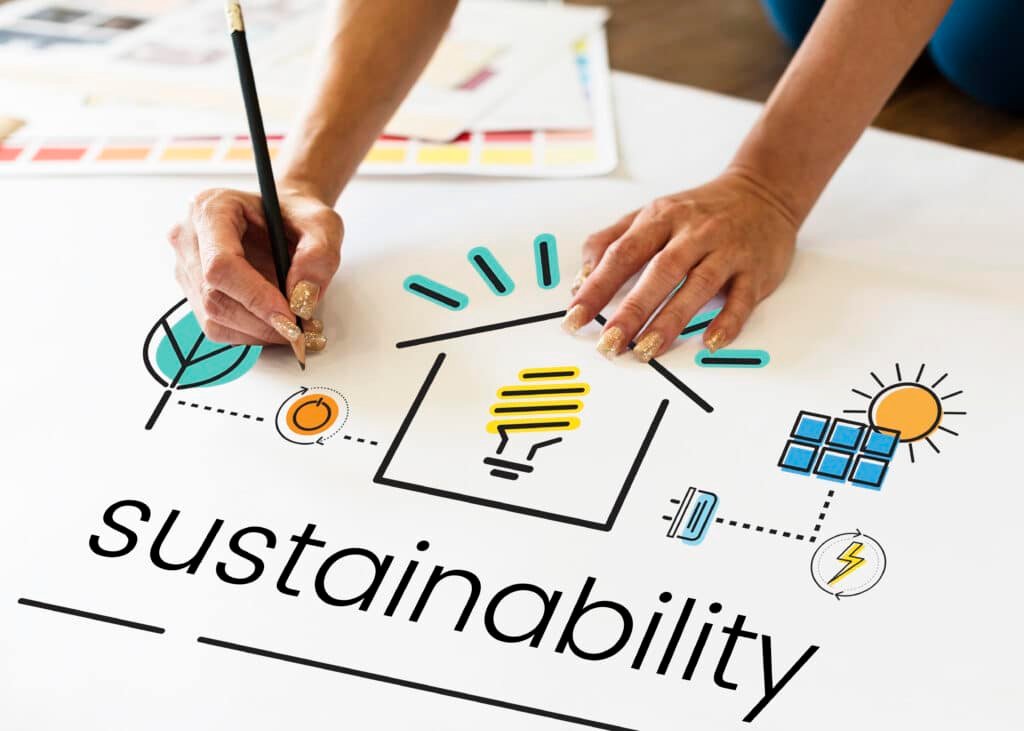
When Bank of America hops on the sustainability train, it would be prudent to examine the entire framework of environmentalism.
One of the two case scenarios would be true
- The current environmental issues are so dire that even dehumanizing banking behemoths.
- The finance sector is using popularized verbiage to consolidate other agendas.
Or perhaps, something in between?
First, let’s clear the air by addressing the recent history of environmentalism:
- Global Cooling was the theory of the decade in the 1970s, just like Climate Change is now.
- Acid Rains was the cataclysmic scare of the 1980s.
- The depletion of the ozone layer, thus creating the Ozone Hole, was the main concern of the 1990s.
Eventually, we arrived at Global Warming, pushed by the Oscar-winning documentary. The Inconvenient Truth was created by former Vice President Al Gore. Every piece of content and data point in that documentary. Later comprehensively discredited by numerous experts and organizations.
However, the inertia of that push lingered on, which leads us to the current rebranding of environmentalism – Climate Change. Deliberately ambiguous and bereft of claims in its moniker, Climate Change is itself an exercise in incoherency. After all, the word “climate” contains change. There is no such thing as a static climate.
Furthermore, computer models that push for the public acceptance of Climate Change contain nothing. But severe failures in their predictions, many of which would have occurred by now. From ice sheets melting (they are growing) to submerged coastlines and islands (rich people keep buying coastal real estate).
When it comes to modern environmentalism is a record of deceit and a parade of errors.
Surprisingly, none of them seem to matter. The underlying theme is under a different name. The most recent, high-impact eco-documentary, Planet of the Humans, created by a lifelong environmentalist Jeff Gibbs, reveals in no uncertain terms that the entire green industry is a malignant boondoggle for corporations. As governments offer subsidies and other benefits within the framework of sustainability and carbon footprint. No studies are emerging that showcase the feasibility of renewables as a viable alternative to modern power civilization due to issues of efficiency and reliability.
Nonetheless, no matter how much eco-deception we systematically uncover and reflect upon in our essay writing. The fact remains that environmentalism is important. There is nothing more important than environmentalism, as our quality of life directly aligns with the quality of our environment. The computer model predictions might be proven woefully erroneous. We have eyes to see the rivers of garbage. Rivers that hold more pollutants than water, smog-enveloped cities, and plastics contaminate our water supplies and endanger the oceanic ecosystems.
Without bad actors, working in the eco-system of governments and big capital. What would be the correct course of action to address the very real problem of sustainability?
Fortunately, that question is exceedingly easy to answer. All environmental problems arise from one issue above all other concerns overpopulation. Not the overpopulation of the developed world. Which has had a stable or under-replacement population rate for over half a century, but Third World overpopulation. According to UN projections, the African population alone is skyrocketing. Further exacerbated by global capital, which seeks to grow its base of customers.
If the intentions of financial entities like Bank of America were true. They would start funding campaigns to implement the following measures to ensure sustainability:
- Immediately stop all immigration from the Third World. As migrants arrive in developed countries, they raise birth rates and increase the carbon footprint drastically.
- Immediately stop interfering in non-developed nations, politically, culturally, technologically, and militarily.
US military while occupying Afghanistan was advised to keep vehicles at all times. So that more money could be spent. In the words of an unidentified official, “We were given money, told to spend it, and we did without reason.”
Is it sustainable to import millions of migrants to slash wages and increase the carbon footprint? Is the current economic model of infinite growth, in which all governments and corporations participate, a sustainable model?
In conclusion
If we are to take sustainability seriously, we must identify bad actors. It is more difficult than it seems as they like to use identical verbiage as honest environmentalists. Under such verbiage, they deceive the public and push for their bottom lines.
